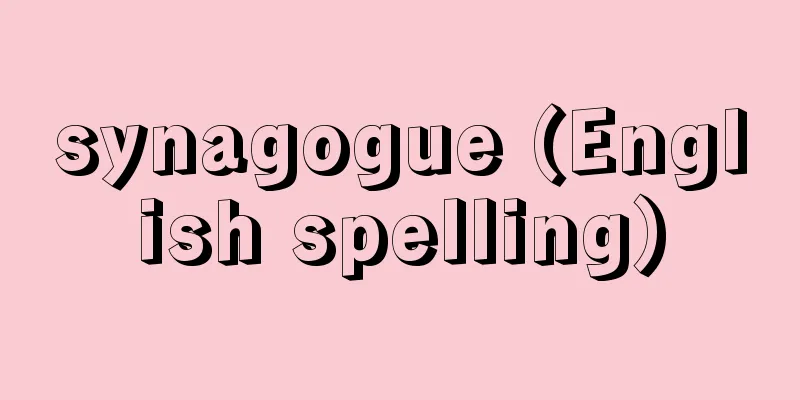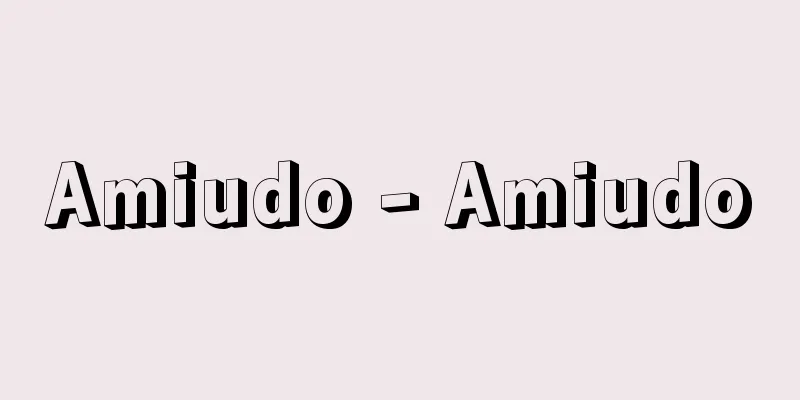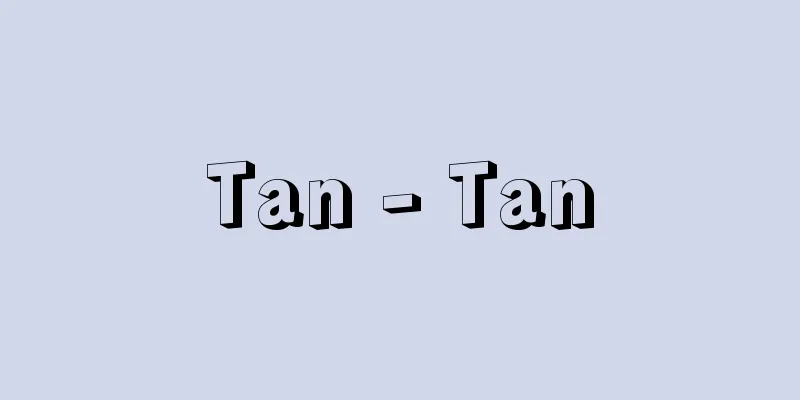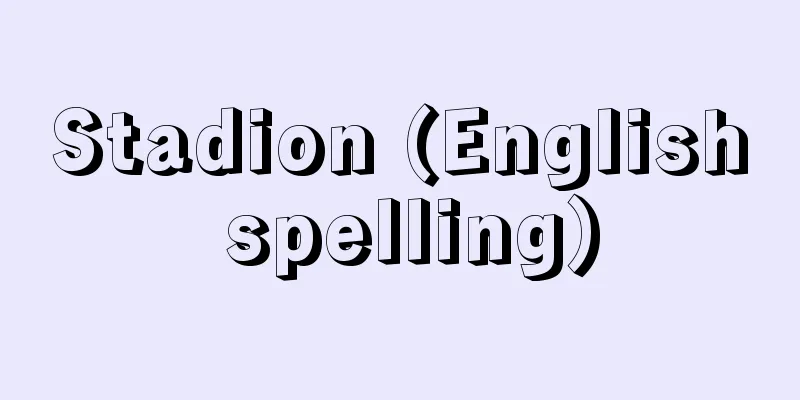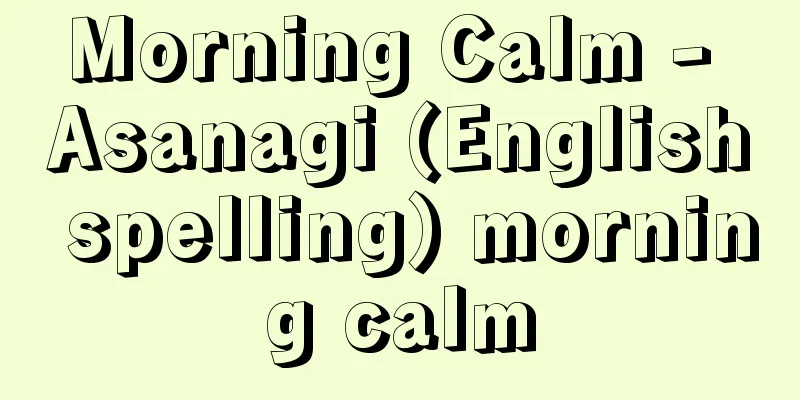Public Order Police Law
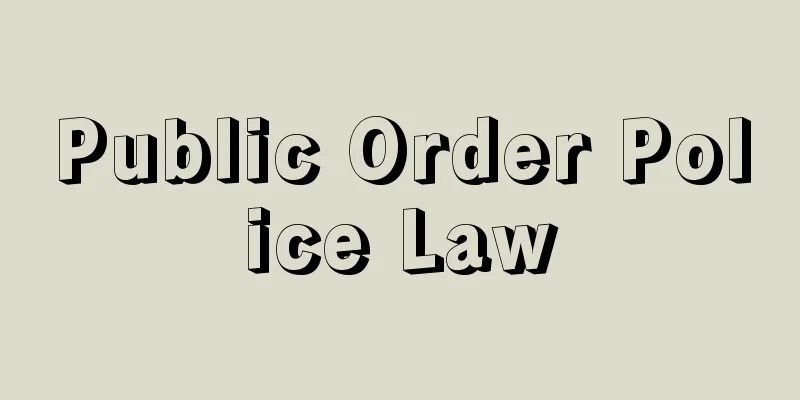
|
This law was enacted in 1900 (Meiji 33) with the aim of restricting citizens' political activities in the form of meetings, demonstrations, associations, etc., and also suppressing labor and peasant movements. It underwent some amendments afterwards, but remained in effect until it was abolished by order of GHQ (Supreme Commander for the Allied Powers) on November 21, 1945 (Showa 20). This law consists of two parts. The first part, which regulates political activities, originated from the Assembly Ordinance, which was enacted in 1880 (Meiji 13) to suppress the Freedom and People's Rights Movement, and was amended many times to become this law. Its contents are as follows: [1] Notification was required for the holding of political meetings and the formation of political associations, and the authorities were free to prohibit or disband these meetings or associations when it was "necessary to maintain peace and order" (Articles 1-4 and 8). As a result, associations that advocated socialism were effectively prohibited from legal activity. Representative examples are the ban on associations of the Social Democratic Party (1901) and the Japan Socialist League (1921), as well as the ban on associations of the Labor and Farmers Party and the Japan Labor Union Council in 1928 (Showa 3) in the wake of the March 15 Incident. Secret societies were also prohibited (Article 14). [2] Military personnel, police officers, religious leaders, teachers, students, etc. were prohibited from joining political associations, and women, along with minors, were prohibited from not only joining associations but also participating in rallies (Article 5). There were repeated protests against this discrimination, and finally in 1922 (Taisho 11), the prohibition on women participating in political rallies was removed. [3] Other provisions included restrictions on what could be said at rallies and surveillance by police officers. The second part of this law is the regulation of labor and peasant movements (Article 17). This section was first introduced in this law in an attempt to suppress the workers' movement, which was just beginning to emerge at the time of the law's enactment, while it was still in its infancy. Article 17 does not prohibit workers and others from organizing or engaging in industrial action itself, but it does in fact prohibit them by punishing "violence or intimidation of others" for the purpose of doing so, especially "incitement or instigation of others" to go on strike. For this reason, there was strong demand from workers to repeal Article 17, and due to strong movements, especially after World War I, restrictions were put on its application, and the article was finally deleted in 1926. [Osamu Watanabe] [Supplementary Material] |©Shogakukan "> Public Order Police Law (Excerpt) Source: Shogakukan Encyclopedia Nipponica About Encyclopedia Nipponica Information | Legend |
|
集会、デモ、結社などの形態による市民の政治活動を規制し、また、労働・農民運動の抑圧を目的として、1900年(明治33)に制定された法律。その後若干の改正を経たが、1945年(昭和20)11月21日にGHQ(連合国最高司令部)の命令で廃止されるまで存続した。本法は二つの部分からなっている。 第一の政治活動規制部分は、自由民権運動抑圧のために1880年(明治13)に制定された集会条例をその起源としており、たびたびの改正を経て本法に至った。その内容は以下のようなものである。〔1〕政治集会の開催、政治結社の結成の場合には届出が義務づけられ、当局は「安寧秩序ヲ保持スル為(ため)必要ナル」場合は、自由にこれら集会や結社を禁止・解散させることができた(1~4条・8条)。このため社会主義を標榜(ひょうぼう)する結社などは事実上合法的活動を禁止された。社会民主党(1901)、日本社会主義同盟(1921)に対する結社禁止処分、また三・一五事件を契機とした1928年(昭和3)の労働農民党、日本労働組合評議会などの結社禁止がその代表的例である。また秘密結社も禁止された(14条)。〔2〕軍人、警察官、宗教者、教師、学生などは政治結社に入ることを禁ぜられ、また未成年者と並んで女子は結社ばかりか、集会に参加することも禁ぜられた(5条)。この差別に対しては反対運動が繰り返され、1922年(大正11)ようやく女子の政治集会参加禁止だけは削除された。〔3〕ほかにも集会での発言に対する制限や、警察官の監視などが規定されている。 本法の第二の部分は、労働・農民運動規制である(17条)。この部分はとりわけ、制定当時ようやく台頭し始めた労働者の運動を萌芽(ほうが)のうちに抑圧しようと、本法で初めて登場した。第17条は労働者などの団結や争議行為そのものを禁止してはいないが、そのために「他人ニ対シテ暴行、脅迫」などをすること、とりわけストライキのために「他人ヲ誘惑若(もしく)ハ煽動(せんどう)スルコト」を処罰することにより事実上それらを禁止するものであった。そのため、労働者からは、この第17条廃止の要求が強く、とりわけ第一次世界大戦以降の強い運動により適用の制限がなされるようになり、1926年ついに同条は削除された。 [渡辺 治] [補完資料] |©Shogakukan"> 治安警察法(抄) 出典 小学館 日本大百科全書(ニッポニカ)日本大百科全書(ニッポニカ)について 情報 | 凡例 |
<<: Cianjur (English spelling)
>>: Peace Preservation Law - Chian Ijiho
Recommend
Ganga Delta - Ganga Delta
…Calcutta is located on the left bank (east bank)...
N,N'-Ethylenebiscobalt(II)
… The common name for N , N′ -ethylenebis(salicyl...
Neural plate
…As development continues, the tissues of the sur...
Permanent income hypothesis
…After World War II, the so-called consumption fu...
Vitreous body -
The vitreous body is a gel-like tissue that fills...
Bethlen I.
...In addition, the Treaty of Trianon in 1920 saw...
Mikasa [city] - Mikasa
A city in central-west Hokkaido. Incorporated as a...
Junction
…A facility that allows traffic to cross, branch ...
Quaternary ammonium compound
Ammonium compounds NH 4 X (X is an acid group) are...
Argyroderma
... Bergeranthus is a small, colonial plant with ...
Kinu-nuibe
This was a department that engaged in sewing in th...
otterhound
...A medium-sized breed, 52-60cm tall and weighin...
Johann Heinrich Jung‐Stilling
1740‐1817 German pietist, ophthalmologist, and fin...
Nysiades
…(6) Leimōniades: Nymphs of the pastures. In addi...
Hou Fang Yi - Kouhouiki
He was the first Chinese literary figure in the l...
